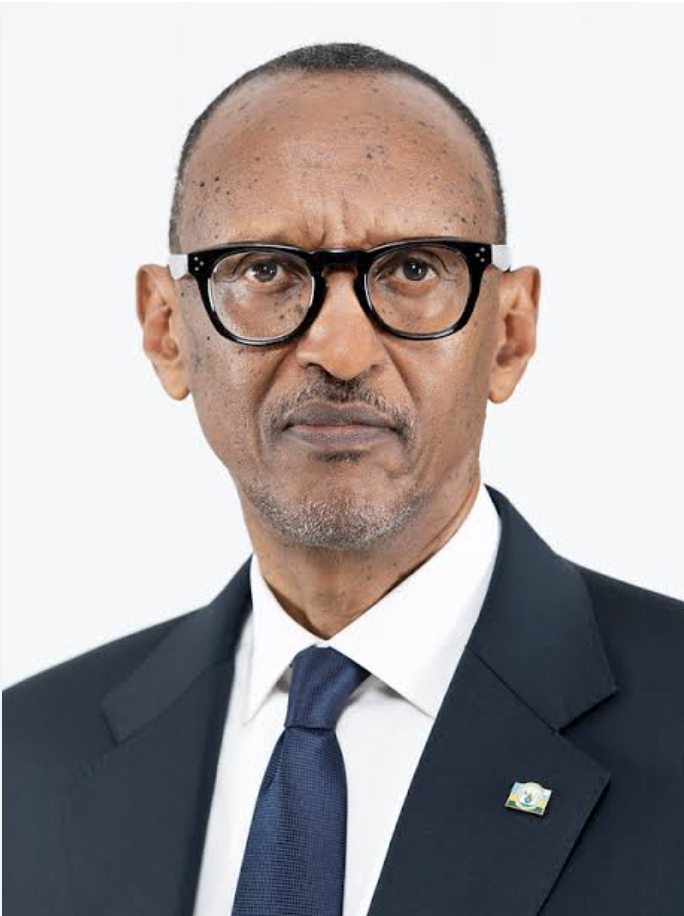
100africa.com Reporter
In the landscape of global leadership, few figures are as transformative as Paul Kagame, the President of Rwanda. Known for his decisive role in ending one of the most brutal genocides in history, Kagame has restored stability to his country and initiated a sweeping economic and social transformation. His leadership style, marked by resilience, strategic foresight, and an unwavering commitment to his people, showcases a profound narrative of redemption and visionary governance.
The Hero Who Ended a Genocide
The year 1994 marked one of the darkest periods in modern history when Rwanda descended into a devastating genocide. In approximately 100 days, close to 800,000 lives were lost, predominantly those of Tutsi and moderate Hutus. The world watched in horror as the country spiraled into chaos. However, it was Paul Kagame, then a young leader of the Rwandan Patriotic Front (RPF), who emerged as the beacon of hope. At just 36 years old, Kagame led a daring campaign to halt the killings, orchestrating a military intervention that would ultimately cease the violence and reshape Rwanda’s history.
From Exile to Leadership
Kagame’s journey to this pivotal role began years earlier and was shaped by personal adversity and exile. Born into a Tutsi family in 1957, Kagame was forced to flee to Uganda in 1960 to escape rising ethnic tensions and violence. Growing up in refugee camps, he faced hardship and discrimination, experiences that instilled in him a deep resolve to fight for justice and equality. His early life in exile was pivotal, providing him with a unique perspective on oppression and the value of inclusive governance.
Architect of Rwanda’s Renaissance
Following the genocide, Kagame assumed the presidency in 2000, inheriting a nation in ruins. Rwanda’s economy was decimated, its communities fractured, and its people scarred by unspeakable trauma. Undeterred, Kagame embarked on a bold mission to rebuild Rwanda from the ground up. His government implemented a series of visionary reforms aimed at economic revival, social cohesion, and national reconciliation.
Under Kagame’s leadership, Rwanda’s GDP growth averaged 8% annually from 2001 to 2014, a remarkable achievement that significantly reduced poverty. Ambitious initiatives across multiple sectors accompanied this economic turnaround. Kagame prioritized education, healthcare, and infrastructure, which catalyzed further development and international investment.
Champion of Gender Equality and Technological Innovation
A standout aspect of Kagame’s policy agenda has been his championing of gender equality. Under his governance, Rwanda has become a global leader in female representation in government, with women holding more than 60% of the seats in the national parliament—a first for any country. This commitment extends beyond political representation; it is also evident in education and entrepreneurship programs specifically tailored for women.
Furthermore, Kagame has pushed Rwanda to the forefront of technological innovation. Initiatives like the One Laptop per Child program and partnerships with tech giants such as IBM and Google have transformed the country into a technology hub of Africa. Kigali, the capital, is often cited as a model smart city with widespread connectivity and digital services that promote efficient governance and business growth.
A Global Advocate for Humanity
Kagame’s influence extends well beyond Rwanda’s borders. He has been a vocal proponent of African unity and self-reliance, advocating for a shift from dependency on foreign aid to sustainable, mutual partnerships with the rest of the world. His leadership in the African Union and various regional alliances underscores his vision for a self-sufficient, integrated Africa.
His commitment to global humanitarian issues was highlighted at the International Conference on Urgent Humanitarian Response for Gaza in 2024, where he emphasized the need for swift and effective global action to alleviate suffering. Kagame’s advocacy for peace and humanitarian support across continents positions him as a global statesman dedicated to universal human rights and dignity.
Controversies and Criticisms
Despite widespread acclaim for his achievements, Kagame’s administration has not been without controversy. Critics argue that his governance style bears authoritarian tendencies, with reports of suppressed political opposition and restricted freedom of the press. However, many also acknowledge that his leadership approach might be a necessary firmness in the context of Rwanda’s fragile post-genocide recovery.
Legacy and Future Vision
As Rwanda commemorated the 30th anniversary of its liberation in 2024, Kagame’s reflections on the nation’s journey were poignant. He emphasized the importance of remembering and learning from the past to shape a better future. His ongoing initiatives, such as the Kigali Innovation City, continue to attract global attention and investment, reinforcing Rwanda’s position as a progressive, forward-looking nation.
Kagame’s leadership of Rwanda is a testament to the power of visionary leadership and the potential for transformative change in post-conflict societies. His policies have not only stabilized a nation once on the brink of collapse but have also set it on a path of rapid economic growth and social transformation. His enduring commitment to the welfare of his people and his advocacy on the global stage solidify his legacy as a true hero of humanity. As Rwanda continues to evolve under his leadership, Kagame’s journey from a refugee to a head of state remains a powerful inspiration to leaders worldwide, demonstrating the profound impact one individual can have on the destiny of a nation.
